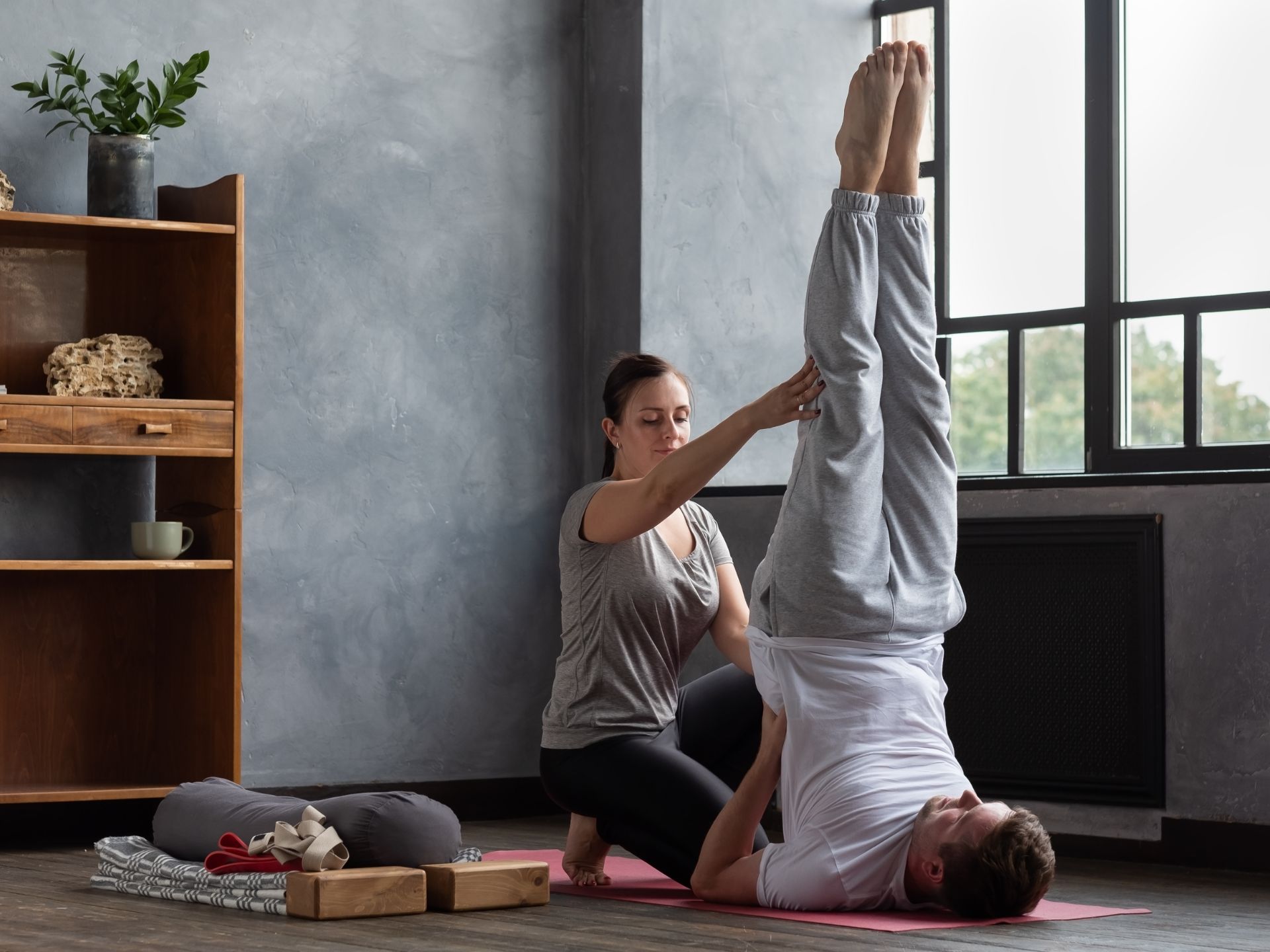BiG Feature : It’s All In Your Head


Written by Gary Stanyard & Jia Ying Chia |
You know exercise is necessary for your physical health (because how else would we justify that sneaky drive to McDonald’s for a 20-piece box of nuggets), and maybe you might know that moving your body also helps keep your mind in check alongside boosting your mood, improving your sleep, and even help in treating depression, anxiety, stress and more. But why does it do that and what sports could be particularly helpful?
While the outer benefits of staying active are more visible to yourself and others, you may have missed what your weekly netball competition or even that post-dinner walk along the simpang has been doing to your brain.
GET STRETCHY
Yeah, yeah, I know you’re probably saying ‘of course, Yoga helps’. We’ve all seen the Instagrams of smiling yogis effortlessly twisting and flipping into apprehensively bendy shapes telling you how peaceful they’ve become. They’re not wrong though. The slow movement practice works best when combined with breath practices and meditation, to calm and centre your mind. Great for day when you leave the office feeling worse than that guy.
Studies by Harvard Medical School show that when you regularly practice yoga, your brain cell develop new connections and changes occur in brain structure and function, resulting in improved cognitive skills like learning and memory. Yoga is also said to strengthen key parts of the brain related to memory, attention, awareness, thought, and language.
You know how weightlifters workout to build muscle strength? Imagine doing that for your brain. Yoga has also come up as one of the strongest contenders for aiding in the treatment of mental health issues like depression and anxiety, according to a 2016 study published in Complementary Therapies in Medicine. Tai Chi is a good alternative if you’re facing mobility issues or have medical conditions that would be triggered by yoga.
RUNNING MAN (OR WOMAN)
Specifically, outdoors. Running as a whole has incredible benefits – a cocktail of calming neurochemicals gets released. Significant increases in heart rate literally results in changes to your brain chemistry to give you that all-familiar ‘runner’s high’. Giving yourself a healthy distraction by going for a run in times of stress or grief, is also a neat way your brain can be tricked into moving its focus. Running outdoors in particular has added benefits on top of the focus needed to complete the task, as you’ll need to pay attention to changes in the environment, or even just taking in the scenery as you go along. All these small nuances of running outdoors gives your brain a good workout to process things while it maintains staying focused on the present.
Not keen on being speedy? Participants in a U.K. study also showed evidence of lower levels of frustration, engagement, and higher level of meditation, when walking through a green space compared to urban and commercial ones. Whatever you feel works best for you, it’s clear that moving your feet outdoors does wonders for focusing your heart and mind.
YOU’RE GONNA CARRY THAT WEIGHT
And we do mean that literally. It might seem odd that such a simple series of repetitive movements could affect your brain so much, but the science shows that lifting weights can actually make you smarter. Results from Sydney University studies on the psychological effects of weight and strength training showed that improvement in cognition function was related to the subject’s muscle strength gains. The weight training program used in the study involved lifting weights that were 80% of the maximum each participant could lift one time.
“As they got stronger, the amount of weight was increased to keep the 80% level. MRI scans after just six months revealed that specific areas of the brain increased in size. Basically, the participants’ overall intelligence improved significantly after lifting weights ” revealed Dr. Yorgi Mavros, who spearheaded the study. The second study showed particular benefits for the elderly or those facing a cognitive decline from illnesses like Alzheimer’s, by actually protecting and reducing shrinkage or deterioration in subregions of the hippocampus – the part of the brain responsible for learning and memory. Perhaps being strong and smart aren’t so different, after all!
So there you have it – science shows us that even small amounts of exercise daily can make a real difference, no matter where you’re currently at. In your fitness journey. The key to all this is to start slowly, and keep challenging yourself consistently. As long as you get started today and make some form of exercise a part of your everyday lifestyle, you can use exercise as a powerful tool to get more out of life, no matter what age you are.
Recent Posts
BiG Buzz : Brunei Fertilizer Industries Sdn Bhd (BFI) 2nd International Women’s Day Forum Champions Collective Progress with “Accelerate Action: Together We Rise”
Brunei Fertilizer Industries Sdn Bhd (BFI) successfully convened its 2nd International Women’s Day Forum at…
Immerse in the Spirit of Ramadhan in Brunei
Sponsored by Brunei Tourism As the holy month of Ramadhan graces Brunei, the country transforms…
BiG Buzz : MANTAP Poised to Boost Brunei Food Economy and Security
Written by Aliyah Ming & Ying Chia [gallery size="full" columns="1" ids="25822"] The entry of Mantap…
BiG Buzz : Take Off to Balikpapan with Royal Brunei
[gallery size="full" columns="1" ids="25813"] After a 24-year hiatus, the Brunei-Balikpapan direct flight has made a…
BiG Buzz : 1, 2, 3, KOPI!
[gallery size="full" columns="2" ids="25837,25838,25839,25840"] How much coffee can you drink? Well, at the 7th annual…
BiG Buzz : Grass is Greener Here
[gallery size="full" columns="1" ids="25832"] [gallery size="full" ids="25831,25834,25833"] The importance of sustainability has been a pressing…


